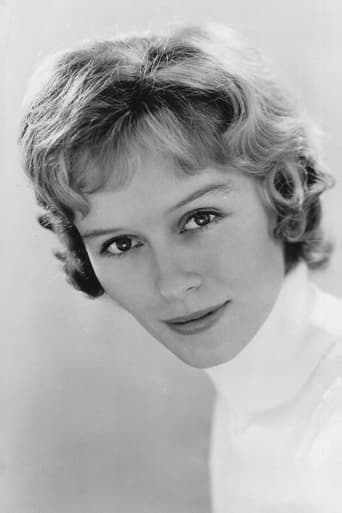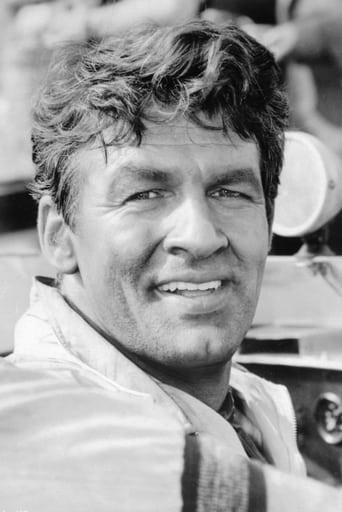Platicsco
Good story, Not enough for a whole film
Baseshment
I like movies that are aware of what they are selling... without [any] greater aspirations than to make people laugh and that's it.
Allison Davies
The film never slows down or bores, plunging from one harrowing sequence to the next.
Anoushka Slater
While it doesn't offer any answers, it both thrills and makes you think.
Spikeopath
Born Free is based on George and Joy Adamson and their raising of a lioness during their time living at a game reserve in Kenya. It's directed by James Hill, adapted to screenplay by Lester Cole, and stars Virginia McKenna and Bill Travers as the Adamsons. Music is by John Barry and cinematography by Kenneth Talbot.It's a classic case of a family film keeping everything simple for maximum results. A big hit upon release, as was the book written by Joy Adamson, the beautiful landscapes and emotionally swirling musical score marry up perfectly with the story being told. There's some liberties taken with the facts, both with humans and lions, but we aren't in to this pic for any sort of misery or grimy drama. We want, and get, feel good, a time for animal lovers to rejoice and wipe that fly from the eye. 8/10
michaelbartos
Born Free has an interesting post colonial undertone of 1960s Kenya. Elsa the lion symbolizes the British controlled colony and the white settlers in Kenya (Joy and George) symbolize the British who realize that it would be wrong to free Kenya/Lions without proper training and preparation to survive in the real world. It is very revealing that the white people in the film are the ones who know how to train the lions and take care of them and the blacks in the film are basically followers and do not have the ability to raise and care for the animals. We see the same logic in the history of colonization. White Europeans realize that only THEY know what is best for Africa and the Africans are simply expected to follow. And what's the deal with George and his malaria??? Not sure what the purpose is in bringing that up. The trailer is hilarious!!! They keep saying the lions live in the jungle!!! I think that was to appeal to the audience ignorant of Africa--probably most Americans in the 60s did think Africa was one big jungle.
treeline1
As this timeless classic opens, George Adamson (Bill Travers), a game warden in Kenya, brings three orphan lion cubs home to be cared for by his wife, Joy (Virginia McKenna). Raised as pets, two of them are eventually sent away to zoos, but the third, Elsa, was especially loved and they decided to keep her. Of course, that soon became impossible, so they set about rehabilitating her back into the wild knowing she might not survive, but feeling she must have the chance to live free.In the 1950s, no one had ever reintroduced an animal to the wild, and the Adamses were the first animal lovers to do so. Travers and McKenna are wonderful as the couple and went on to become animal activists after the filming of the movie. Geoffrey Keene (the 'Minister of Defence' in six James Bond movies) gives able support as George's boss. The Kenyan landscape photography is simply breathtaking and the lions, at various stages of development, are adorable.John Barry won Academy Awards for both his score and song, which are truly iconic and guaranteed to have you reaching for the tissues. This beautiful, inspiring, and unforgettable movie is a must-see for animal lovers.
Neil Doyle
But if you aren't an animal lover, this tale about a lion cub adopted by a game warden (BILL TRAVERS) and his wife (VIRGINIA McKENNA) might be too hard to digest. For anyone who has ever felt the pain of separation that comes from parting with a beloved pet, the film will win a special place in your heart.Vistas of African scenery (filmed entirely on location) and the very effective, insinuating musical score of John Barry are added compensations for a well-acted story about the taming of a lovable lion cub, its eventual growing up into a lioness (called Elsa), and the separation that comes when Elsa must be set free to take her place among the wild animals.The early scenes with the young cub (two other healthier cubs were sent to a zoo after the game warden had to kill the parents), are amusingly depicted and perhaps the most arresting part of the story. But the final scene is cloaked in the kind of sentimentality that has echoes of "Lassie Come Home" with Barry's score emphasizing a final reunion with Elsa before the "Born Free" theme hammers away at the emotions.Summing up: A nature film that animal lovers will adore.




